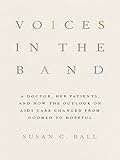 I recently upgraded my old cell phone to an iPhone. My old phone could not send a text without me punching all of the various numbers buttons lots of times to get the correct letter to show up. My texts tended to be very short. As I learn to use my iPhone I am happy to discover new gadgets in it and I’m aware of how easily it has slipped into my pocket as a necessary, frequently referred-to item. If you’d told me twenty years ago that I’d use my telephone to tell me in a human voice how far it is from where I’m standing to my home, or show me the traffic pattern in downtown Houston at 5 pm when I’m in New York, or that my phone could take my picture and send it to my sister in Florida, ( my iPhone can do a whole lot more than this, I know! ) well I don’t know if I would have believed you.
I recently upgraded my old cell phone to an iPhone. My old phone could not send a text without me punching all of the various numbers buttons lots of times to get the correct letter to show up. My texts tended to be very short. As I learn to use my iPhone I am happy to discover new gadgets in it and I’m aware of how easily it has slipped into my pocket as a necessary, frequently referred-to item. If you’d told me twenty years ago that I’d use my telephone to tell me in a human voice how far it is from where I’m standing to my home, or show me the traffic pattern in downtown Houston at 5 pm when I’m in New York, or that my phone could take my picture and send it to my sister in Florida, ( my iPhone can do a whole lot more than this, I know! ) well I don’t know if I would have believed you.
How far we have come from those early days of treating HIV with the “cocktail”. In the late 1990s we routinely recommended patients take multiple different medications several times a day. Every day. Some pills had to be taken on an empty stomach, some with food, some every eight hours on the dot, some at bedtime only. Initially we were glad to have these options for some of us knew a time even before that, when we’d barely been able to treat a few of the effects of the disease, never impacting HIV itself. Still, it required a dedicated, determined patient once we did have effective therapy. And now! Now we have two options for one pill once a day as a full treatment regimen to treat HIV, with more options coming in the next couple of years.
The changes in these last twenty years are quite remarkable. Yes, my iPhone is remarkable in that context. But hundreds of thousands of people who suffer from HIV are alive today because of the changes in the medications. My old cell phone and its short text messages were nothing when you think of it that way.
 I saw a new patient today. He came to the emergency room short of breath. He told the doctors and nurses in the ER that he didn’t have HIV, or that he was unaware that he had it. A review of his chart showed a visit to a doctor at our medical center three years ago where an HIV test was done and came back positive. A note in the chart documents that he was contacted about this and told of the result. A follow-up appointment was made. He didn’t come back. Three years later he is in our emergency room short of breath. This is a bad sign. Where has he been? What has he been doing? Why, when he started feeling short of breath and began losing weight over two months ago, why didn’t he come in then??
I saw a new patient today. He came to the emergency room short of breath. He told the doctors and nurses in the ER that he didn’t have HIV, or that he was unaware that he had it. A review of his chart showed a visit to a doctor at our medical center three years ago where an HIV test was done and came back positive. A note in the chart documents that he was contacted about this and told of the result. A follow-up appointment was made. He didn’t come back. Three years later he is in our emergency room short of breath. This is a bad sign. Where has he been? What has he been doing? Why, when he started feeling short of breath and began losing weight over two months ago, why didn’t he come in then?? In a session with a small group of medical students we talked about patient relationships and social media. We read a piece that appeared in the NY Times Magazine in 2010 in which a resident “friended” one of her patients on Facebook. The patient invited her to his site to look at pictures from a trip he’d taken. Seeing the photos, the resident saw the patient as a “hot” guy, and not just the desperately ill young man in the ICU. But later, when he tried to communicate with her on the Facebook site, she didn’t answer him. Was she right? Was she wrong? What kind of commitment did “friending” him entail?
In a session with a small group of medical students we talked about patient relationships and social media. We read a piece that appeared in the NY Times Magazine in 2010 in which a resident “friended” one of her patients on Facebook. The patient invited her to his site to look at pictures from a trip he’d taken. Seeing the photos, the resident saw the patient as a “hot” guy, and not just the desperately ill young man in the ICU. But later, when he tried to communicate with her on the Facebook site, she didn’t answer him. Was she right? Was she wrong? What kind of commitment did “friending” him entail?


